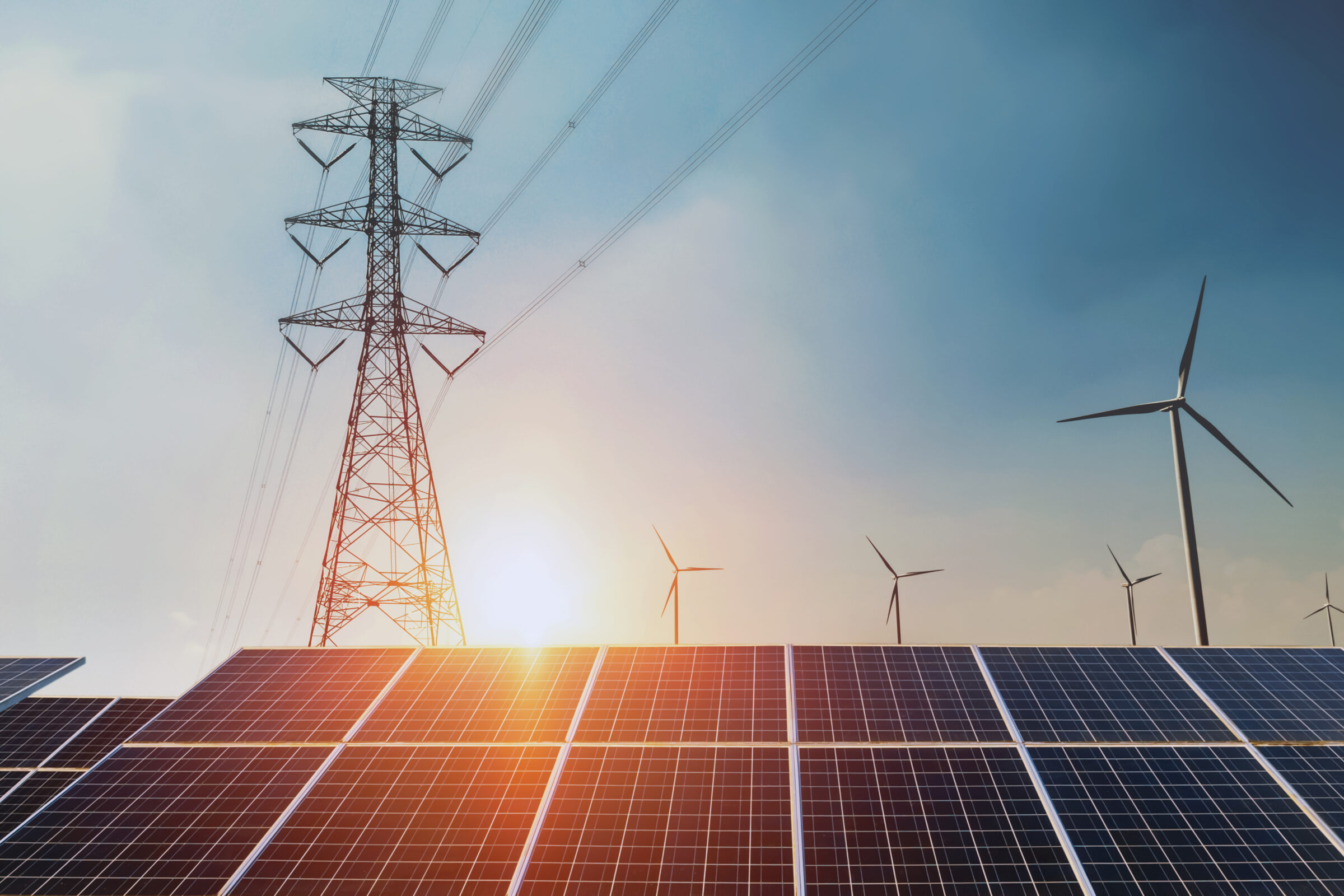- Grid Infrastructure
- Just Transition
- Project Finance
- Tax Incentives & Appropriations
- Trade & Supply Chain
- Transmission & Power Markets
- Workforce
- Blog
ACORE’s March Events Focus on How to Maximize and Build on the Clean Energy Impacts of the IRA
The American Council on Renewable Energy (ACORE) kicked off its 2023 events season with a fantastic spate of activities on the cusp of spring, beginning with the Accelerate Forum and Awards Gala on March 8, and culminating with the ACORE Policy Forum on March 9.
ACORE Accelerate Forum
The Accelerate Forum, hosted at Amazon Web Services’ Washington D.C. office, set the tone for the week’s events by showcasing the accomplishments that were recently made toward achieving a just transition to a renewable energy economy, but also giving a primer of the work that will be needed to expand and diversify the U.S. renewable energy supply chain. The team formally welcomed the third cohort of Accelerate member companies and celebrated the inaugural cohort’s graduation from the program.
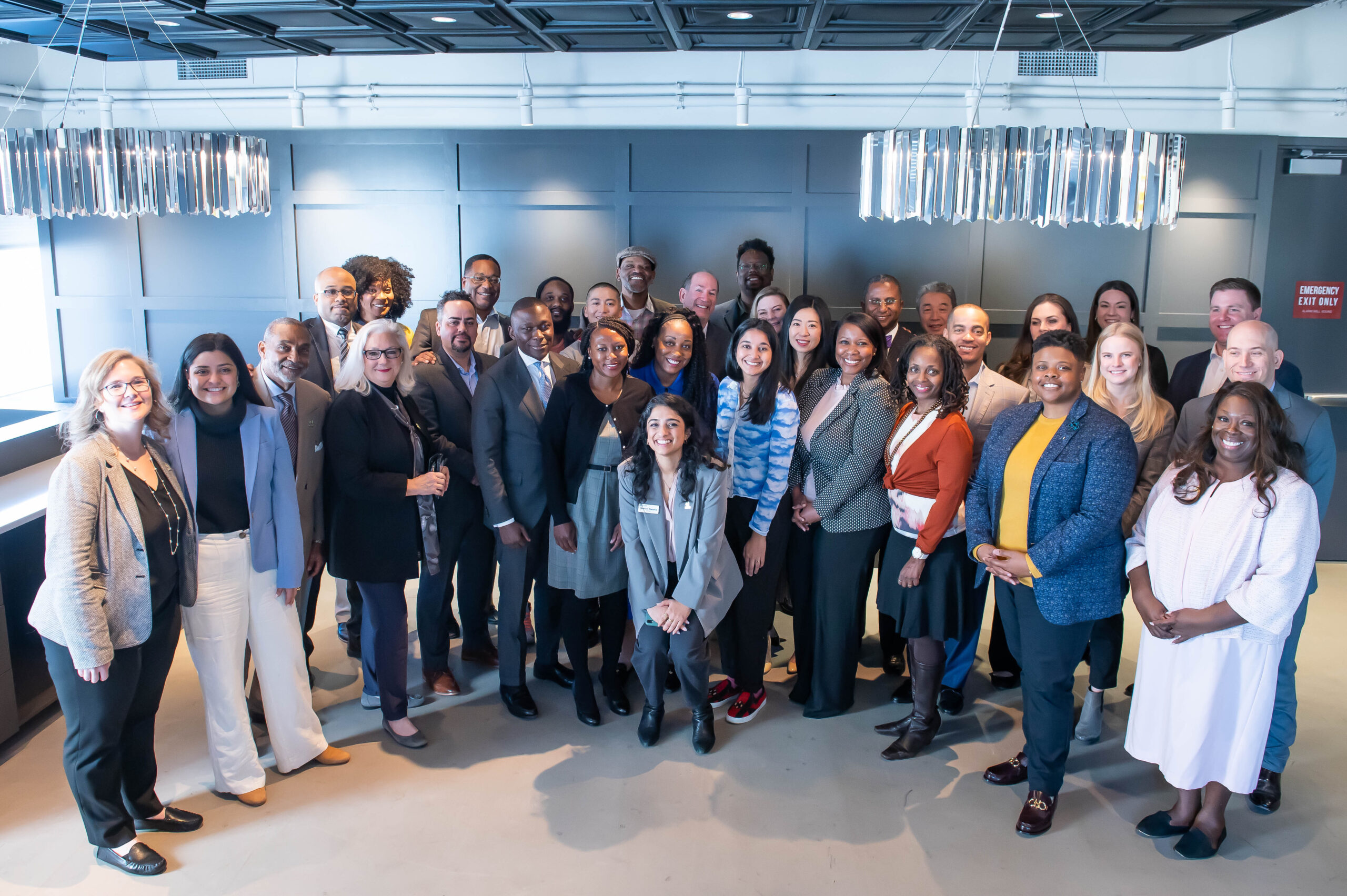
ACORE Awards Gala
Later that evening at the ACORE Awards Gala, former EPA Administrator (and current Senior Of Counsel at Covington and Burling LLP) Carol Browner presented ACORE’s 2023 Renewable Energy Champion Award to U.S. Rep. Kathy Castor (D-FL-14). Under her leadership as Chair, the House Select Committee on the Climate Crisis reframed the nation’s climate agenda to address key electricity sector concerns like transmission.
More than 300 of the committee’s recommendations were ultimately enacted into law as parts of the CHIPS Act, the Bipartisan Infrastructure Law (BIL), and the Inflation Reduction Act (IRA).
This transformative trio of bills finally put the U.S. in a position to make progress toward its climate goals. “I am grateful to be recognized by ACORE as a Renewable Energy Champion after a year of historic progress,” said Rep. Castor. “Alongside incredible partners like ACORE, our work to expand clean energy across America moves forward with urgency and the resources to get it done.”
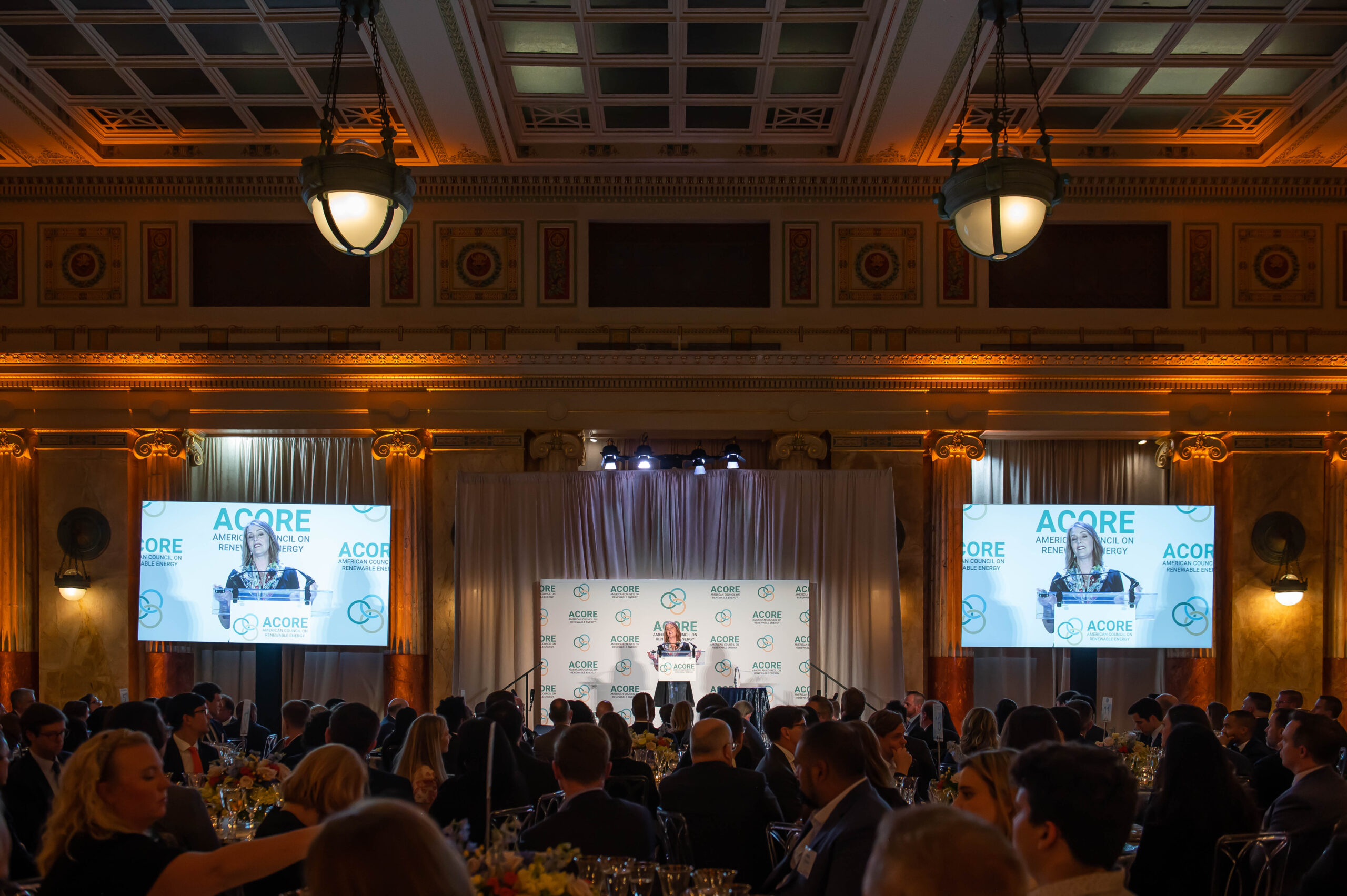
ACORE Policy Forum
The 2023 ACORE Policy Forum in the nation’s capital was once more the premier gathering to discuss the opportunities and headwinds impacting the renewable energy industry today. Against the backdrop of the new policy environment created by the IRA, hundreds of senior leaders from across the renewable energy industry joined officials from Congress and the Biden administration to discuss IRA implementation and key problems that could limit our ability to realize the immense gains made possible under the new law.
While attendees agreed that considerable work lies ahead, the sense of excitement about America’s renewable energy future was palpable throughout the all-day event.
ACORE President and CEO Gregory Wetstone kicked off the 2023 Policy Forum with a call to action: “There are important challenges – some new and some long-standing – that we have to overcome to realize the IRA’s full potential. They include: …the need for clear and prompt guidance from the Treasury Department; the need to expand and upgrade our electrical grid and speed the interconnection process; the need to build the clean energy workforce of tomorrow, one that reflects the nation’s diversity; and the need to catalyze the growth of domestic clean energy manufacturing while maintaining access to the global supply chain.”
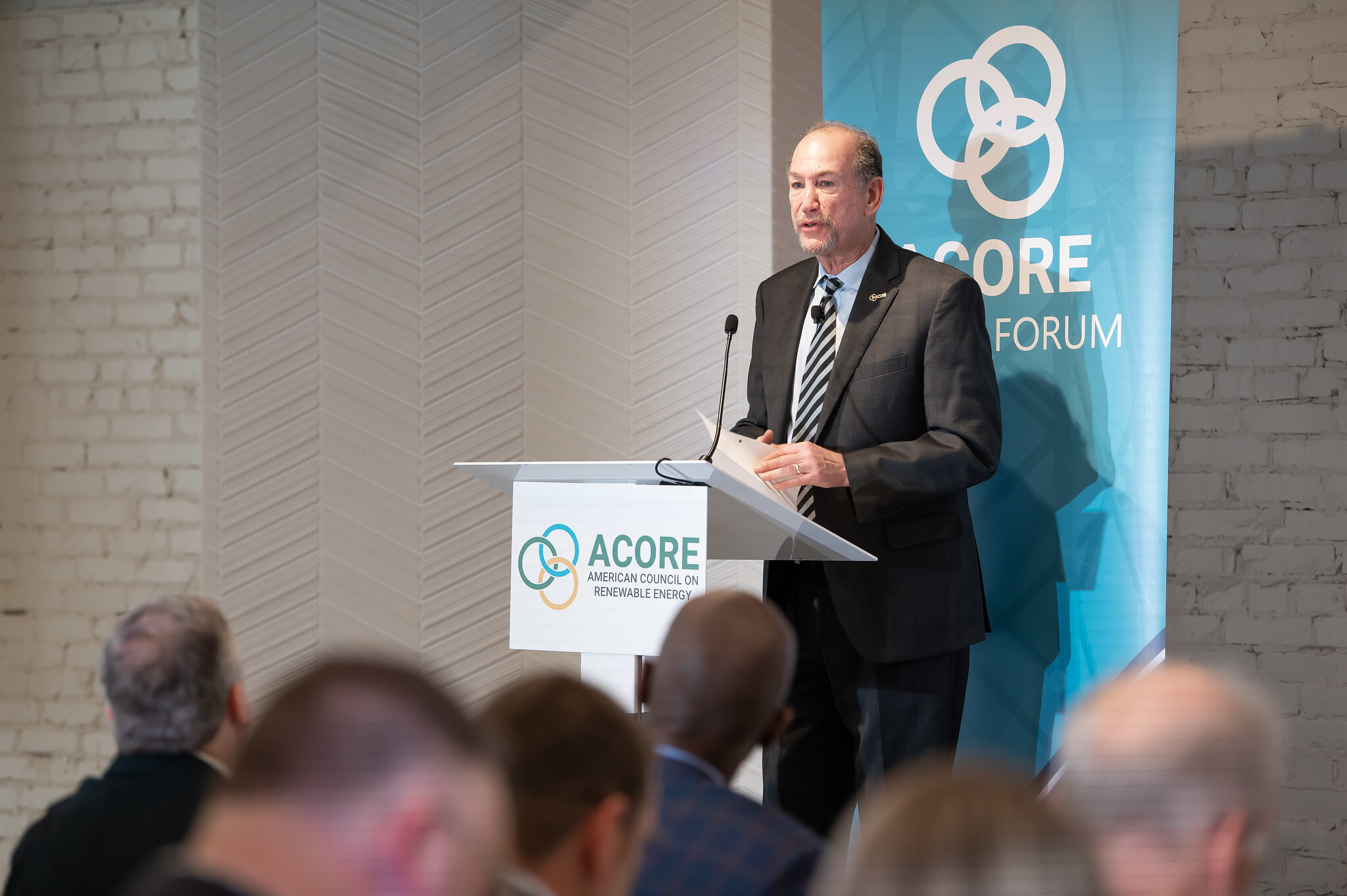
Keynote Remarks: Leading Government Officials Discuss IRA Implementation Efforts, Next Frontiers
Sen. Martin Heinrich (D-NM)
Sen. Heinrich opened his keynote remarks by celebrating the Bureau of Land Management’s issuance of the final Environmental Impact Statement for SunZia, a shovel-ready transmission project that will connect abundant wind energy resources in New Mexico with growing markets in Arizona and California. While SunZia could soon represent the “largest clean energy project in the Western Hemisphere,” Sen. Heinrich also described the years it took to get to this point as a cautionary tale of the problems associated with transmission planning, permitting, and paying – the critical three “P’s” of transmission, a term the Senator credited to Rob Gramlich.
Sen. Heinrich then announced a trifecta of upcoming legislative proposals to address well-known barriers to interregional transmission development. First, Heinrich previewed the reintroduction of his transmission planning bill to ensure that the costs of interregional solutions are allocated according to their multiple benefits, a responsible answer to the longstanding question of who pays.
Heinrich also signaled the reintroduction of his bill to establish an investment tax credit (ITC) for transmission, calling it “unfinished business” from the IRA that would leverage the power of private capital to construct pivotal high-voltage, interregional lines. Lastly, Sen. Heinrich detailed a new measure to streamline transmission permitting through an interagency process coordinated by the Federal Energy Regulatory Commission (FERC) and the Department of Energy (DOE).
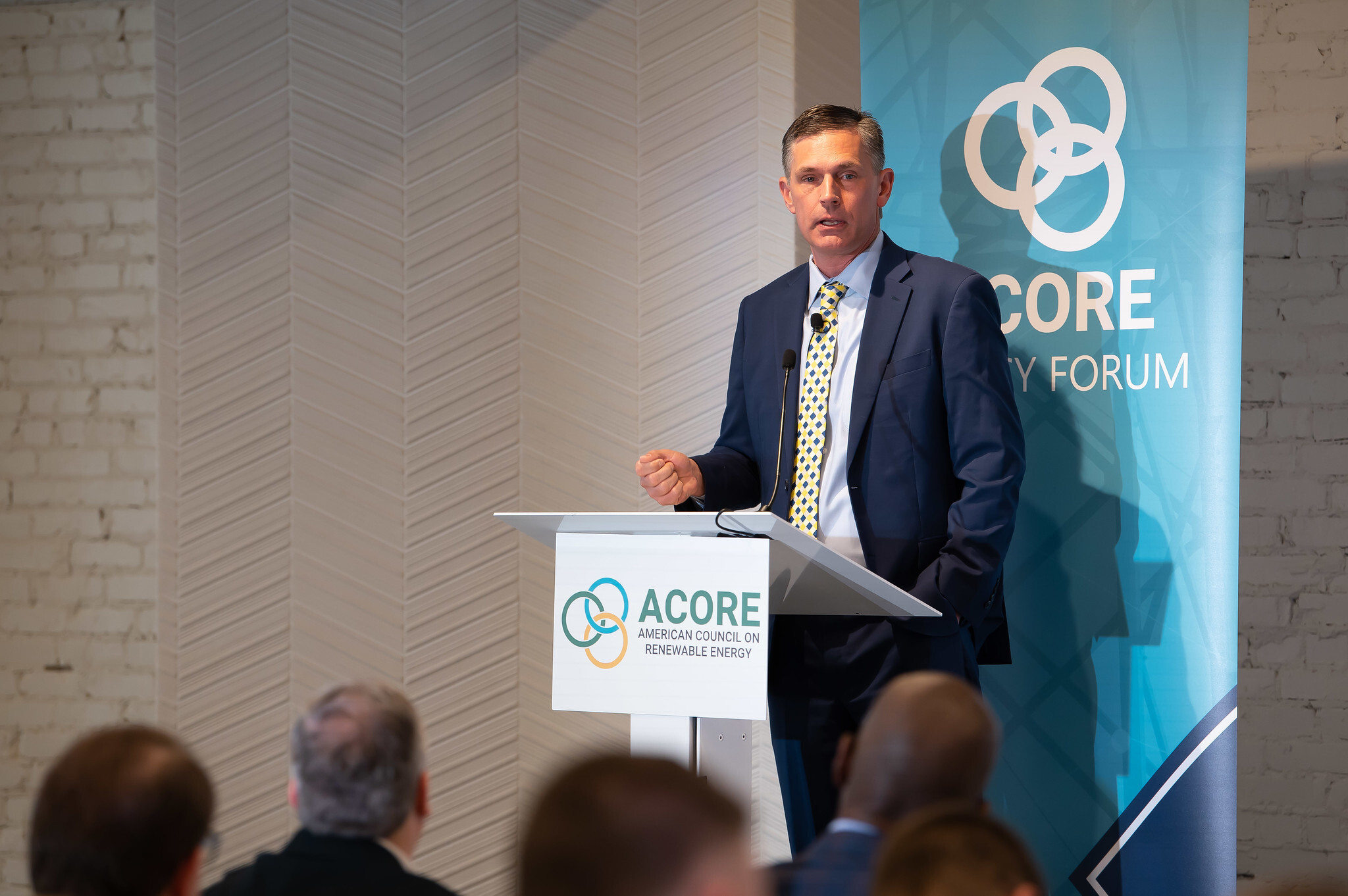
White House Senior Advisor John Podesta
In a fireside chat with ACORE President and CEO Gregory Wetstone, Podesta shared insights on priorities, timing, and approach for his work overseeing the implementation of the IRA.
Podesta emphasized his commitment to securing prompt and effective IRA guidance from the Treasury Department. He celebrated the IRA for providing long-term financial certainty that will spur innovation through a “government-enabled, private sector-led” approach. Podesta embraced the role of government in tackling pressing concerns around renewable energy supply chains, workforce development, and permitting, and maintained an opportunistic spirit in outlining potential solutions to all three.
On the prospect of regulatory pathways to achieve the greenhouse emissions reductions that will still be needed after IRA, Podesta stated: “We intend to move forward with direct use of the Clean Air Act. West Virginia v. EPA, we thought, left the agency with considerable authority and we intend to use it.”
As the nation scales domestic production, Podesta urged patience in the process, which he noted is off to an encouraging start, and spoke to the importance of strategic partnerships with allies to reduce reliance on supply chains from authoritarian regimes.
Podesta also underscored the need for a comprehensive system of apprenticeship programs to meet rising demand for skilled clean energy professionals, driven in part by new labor requirements tied to the full value of certain IRA tax credits.
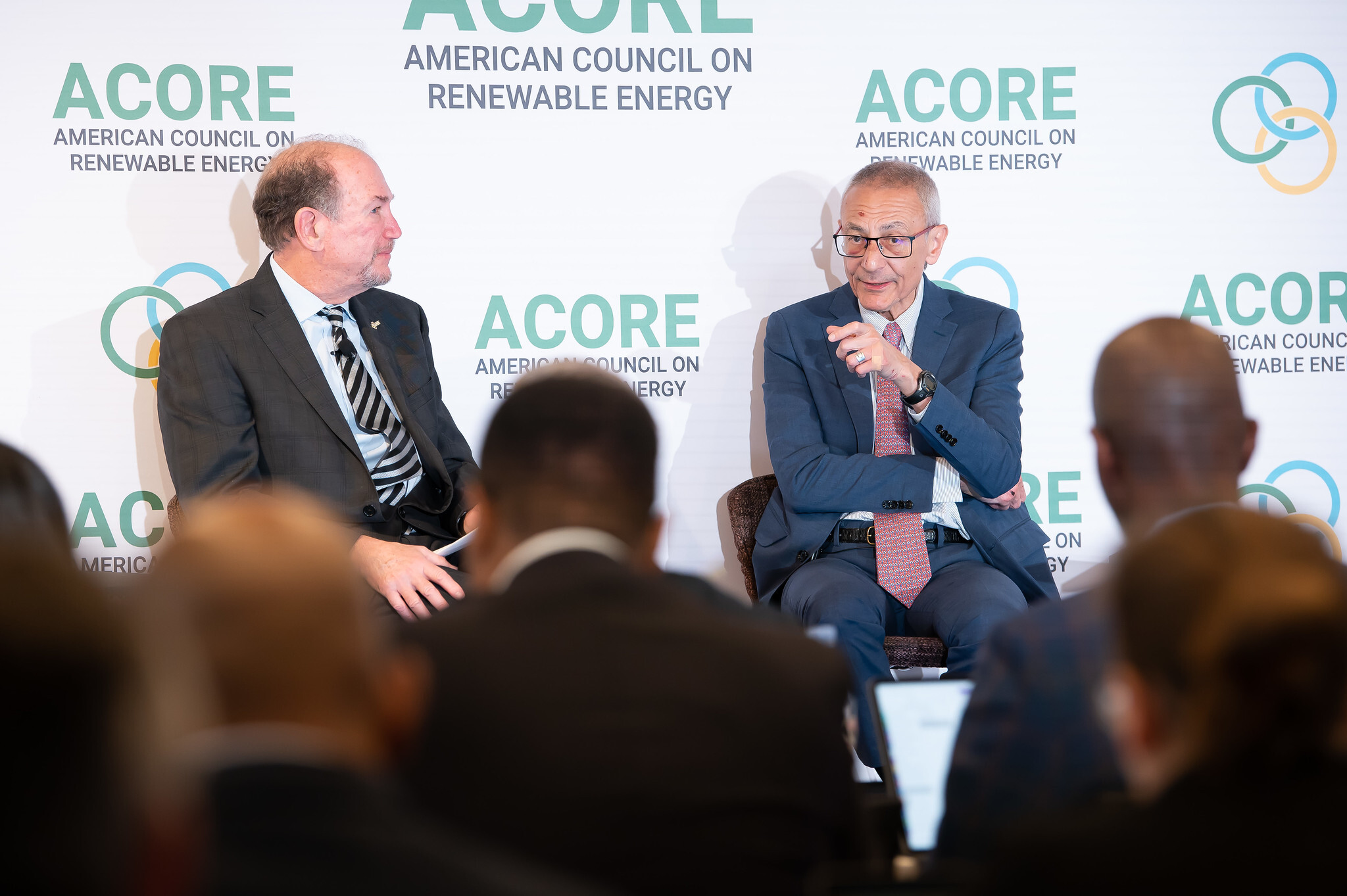
Deputy Assistant Treasury Secretary Seth Hanlon
“Getting it right” and “meeting deadlines” are the dual missions behind the Treasury Department’s ongoing work to publish IRA tax guidance, Deputy Assistant Secretary for Tax and Climate Policy Seth Hanlon told ACORE’s José Zayas in a highly anticipated one-on-one discussion. Hanlon admitted that the intersection of tax with non-tax policies is a unique, yet crucial assignment for his team of approximately 100 experts whom he stated are working around-the-clock-to gather technical knowledge from across the whole of government and various stakeholders.
Carefully reviewing over 4,000 substantive comments is no small task, but Hanlon stressed its importance to understanding how the Department’s rules will impact private companies and the markets in which they operate. Hanlon gave special recognition to the “linchpins” of the IRA tax package – direct pay and transferability – as unparalleled mechanisms to attract first-time renewable energy investors. He suggested that final guidance on various provisions could come in the next several months and will include details on the location of qualifying energy communities.
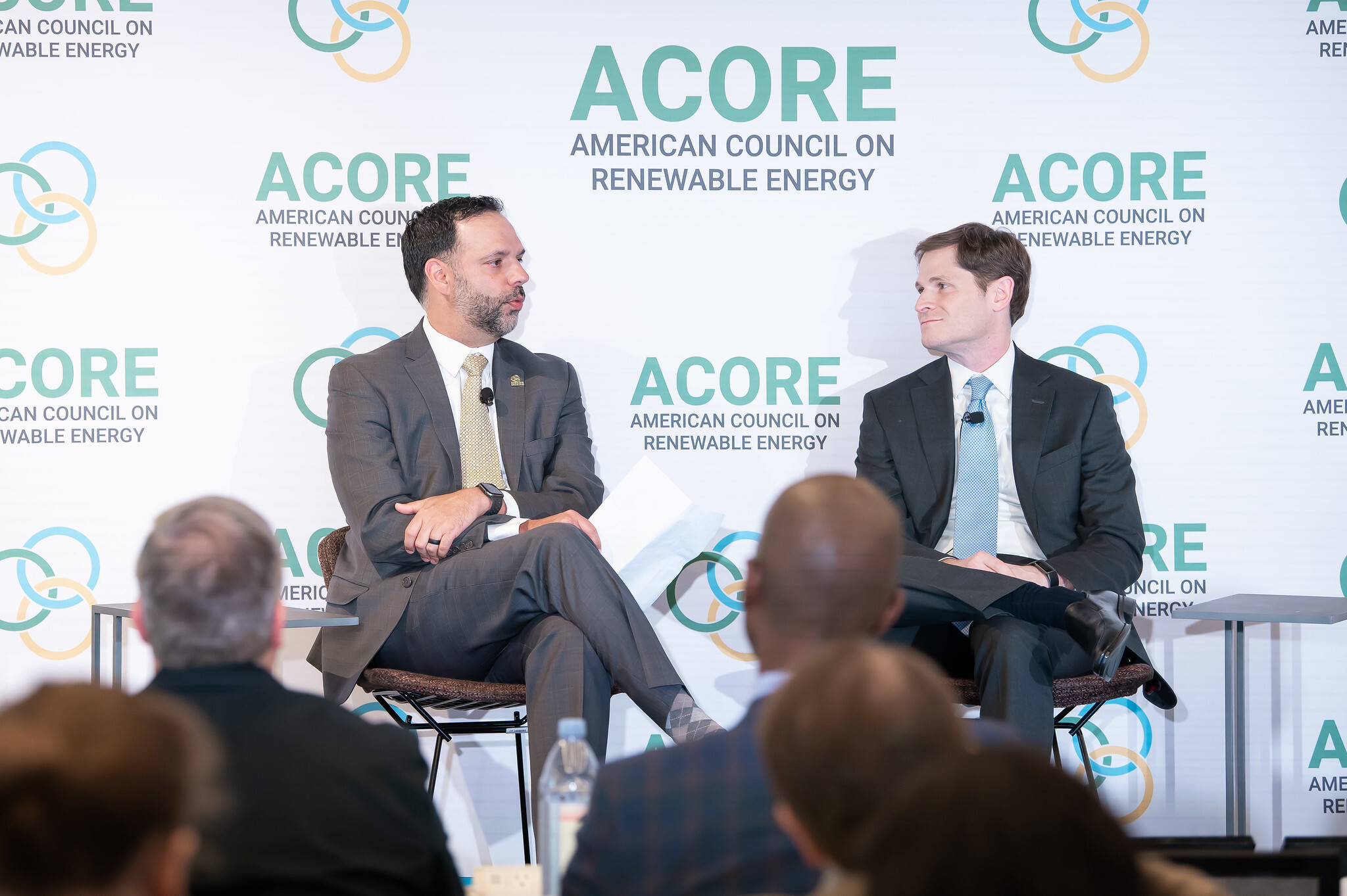
DOE Official Shalanda Baker
The energy transition represents several things at once: a catalyst for American enterprise, a victory for the planet, a tool for international security, and, as Shalanda Baker reminded ACORE Policy Forum attendees, a vehicle for social change. Through the lens of restorative justice, Baker explained that due to the heavy costs of air pollution that fossil fuel facilities have disproportionately borne on Black and Brown communities for decades, renewable energy developers must engage vulnerable residents early and often in project decisions to avoid perpetuating those injustices.
In Baker’s words, “go slow to go fast” and in these conversations make sure to state authentic benefits (e.g., stable employment opportunities). Baker emphasized that such benefits are not automatically conferred because a project is sited in a disadvantaged area, but rather when developers respond accordingly after residents are given an opportunity to communicate their needs. As Baker put it, this simple trade off can make all the difference not just in living up to transformative policies such as Justice 40, but in the overarching fight against climate change.
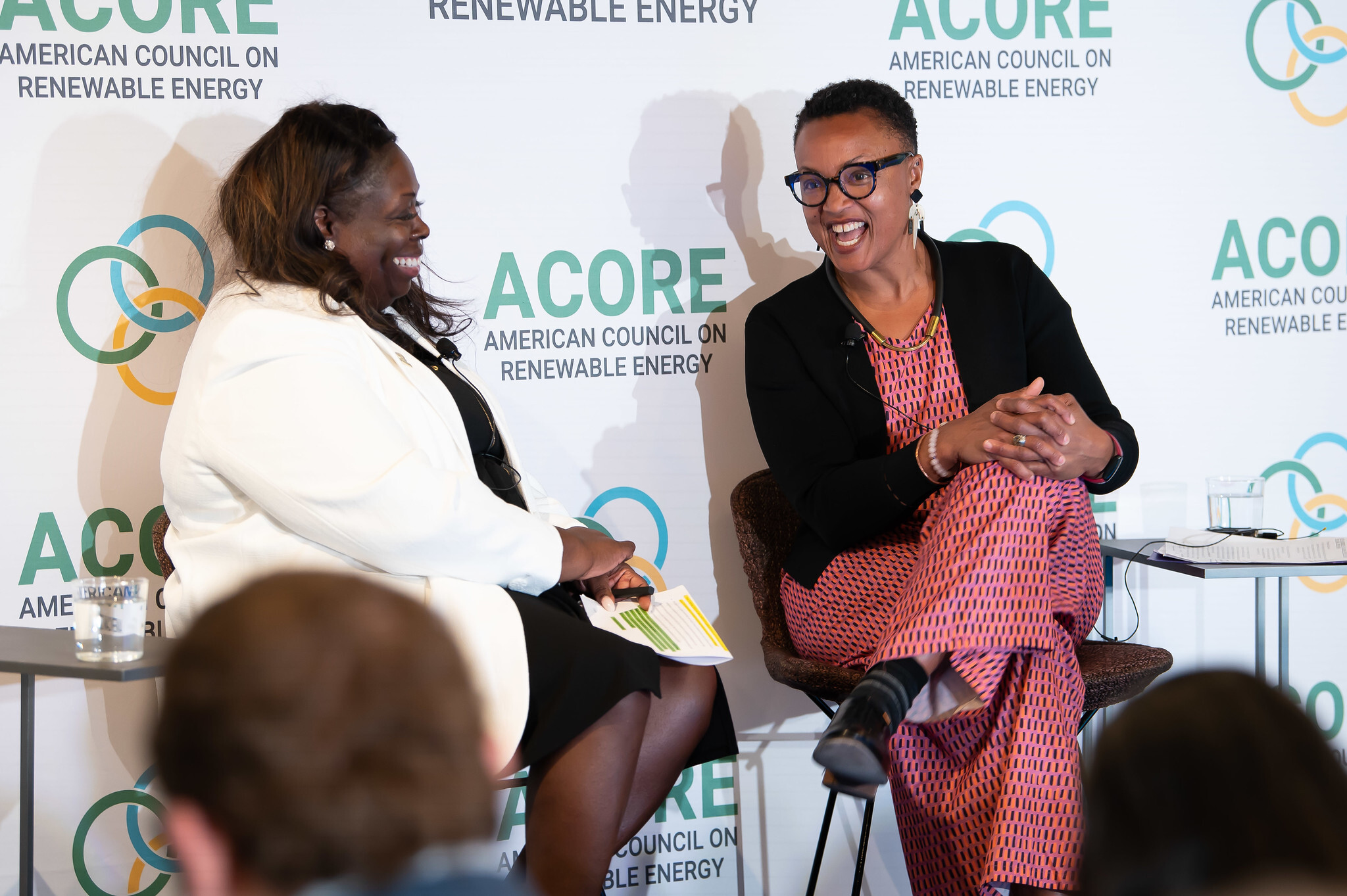
Rep. Earl Blumenauer
As an architect of the IRA, Rep. Earl Blumenauer (D-OR) sympathized with the temptation to rest on one’s laurels after such an enormous achievement, recalling the tiresome battles that he and others in attendance at the ACORE Policy Forum waged over more than a decade to secure key elements such as direct pay and the first-ever standalone credit for energy storage. Yet Blumenauer branded the IRA not as a stopping point, but instead “a point of departure” from which the industry must target remaining objectives.
Paramount among these is transmission, Blumenauer suggested, echoing earlier calls for a transmission ITC. He implored his progressive colleagues in Congress to partake in an honest discussion on permitting reform and move beyond refusals to build new energy infrastructure. Blumenauer also urged his colleagues to promote the IRA as a “win-win” and educate the public on its benefits, pointing out that both red and blue states will receive significant economic and environmental gains.
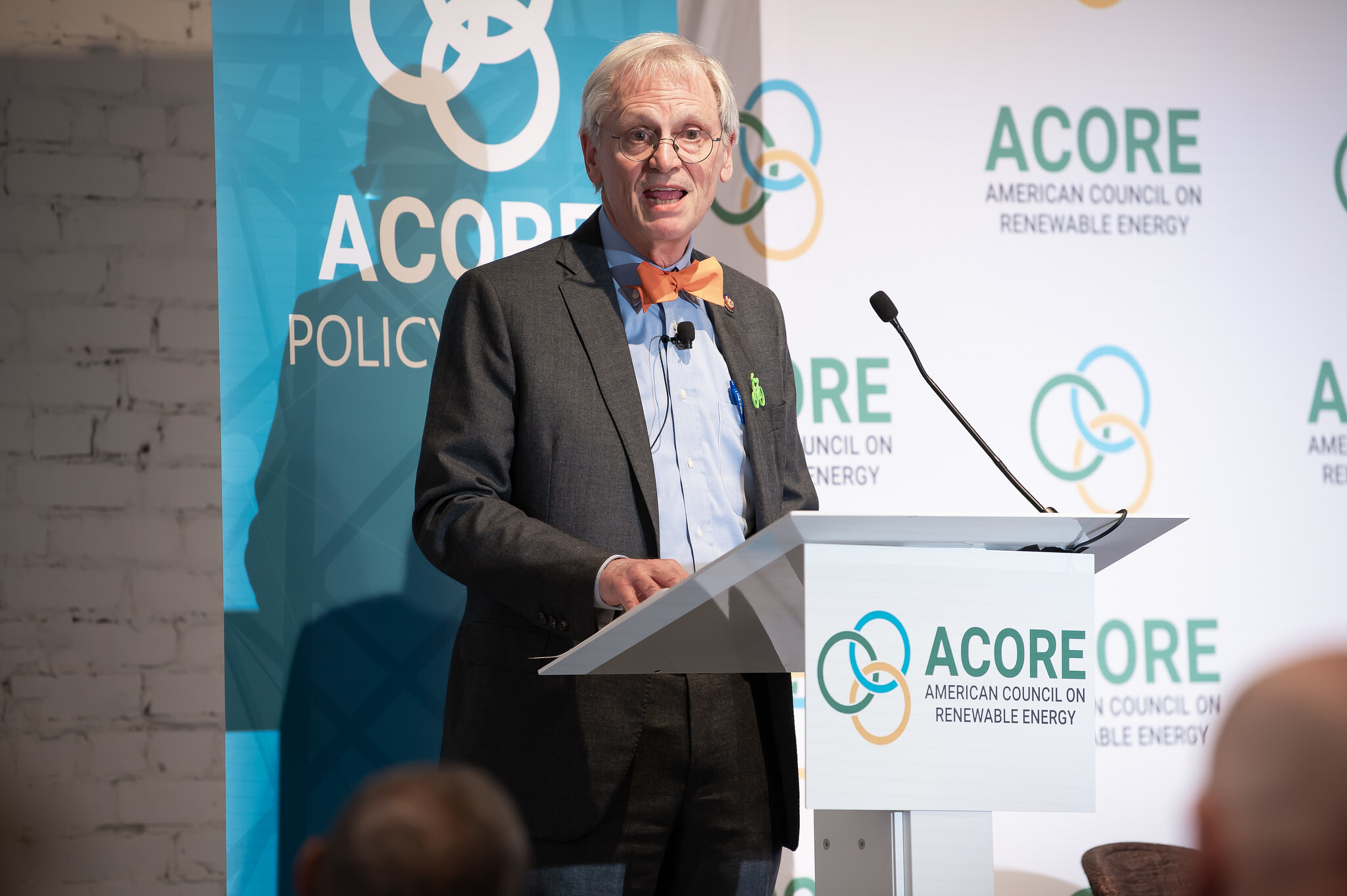
Industry Insights: Four Substantive Panels Examine Ways to Overcome Industry Hurdles
Paving the Road for Successful IRA Implementation
After taking a moment to comment on the enormity of IRA’s impact, the experts on this panel observed that the renewable sector is at a liminal period as their companies navigate short-term uncertainty around a tax package that provides long-term financial stability.
Jack Thirolf (Enel North America) noted how clarity from the Treasury Department on some provisions – especially energy communities and domestic content – would translate to more confident dealmaking and procurement decisions. Chrissy Borskey (GE Renewable Energy) reiterated Thirolf’s point with respect to prevailing wage requirements.
Urvi Parekh (Meta) explained the concept of “pricing uncertainty,” whereby large purchasers of renewable energy must factor in the possibility that assets may or may not qualify for certain tax provisions. From a buyer perspective, Parekh indicated that the “process is working” once prices become more predictable.
While he agreed that prompt guidance is critical for the industry, Ray Wood (Bank of America) suggested that Treasury should be especially precise with provisions such as transferability because ambiguities will lead to higher costs, especially on infrastructure deals which can last multiple decades.

Securing a Supply Chain to Maximize Clean Energy Deployment
Supply chain diversity is supply chain security, according to the experts on this panel who agreed that a fully domestic renewable energy supply chain is still years away, but with significantly improved prospects thanks to the IRA. The panelists defined diversity in the following three ways: geographic diversity to withstand extreme weather and geopolitical events, technology diversity to reduce reliance on a single component or producer, and participant diversity to foster a just and equitable transition.
Kathy Weiss (Nextracker) and Troy Patton (Ørsted Americas) suggested that the acute challenges facing the solar industry are fixable, but will require policies that lend it the time and flexibility to increase cell manufacturing in the U.S. The panel offered several ideas, including an extension of the President’s tariff moratorium, clarity around the enforcement of the Uyghur Forced Labor Prevention Act, and the establishment of a trusted partner mechanism.
Additionally, Lisa Morris (National Minority Supplier Development Council) recommended deepening collaboration with minority-owned businesses, whose cultural competency provides additional value, while Becca Jones-Albertus (DOE) advised U.S. companies to develop innovative partnerships with more experienced international firms.
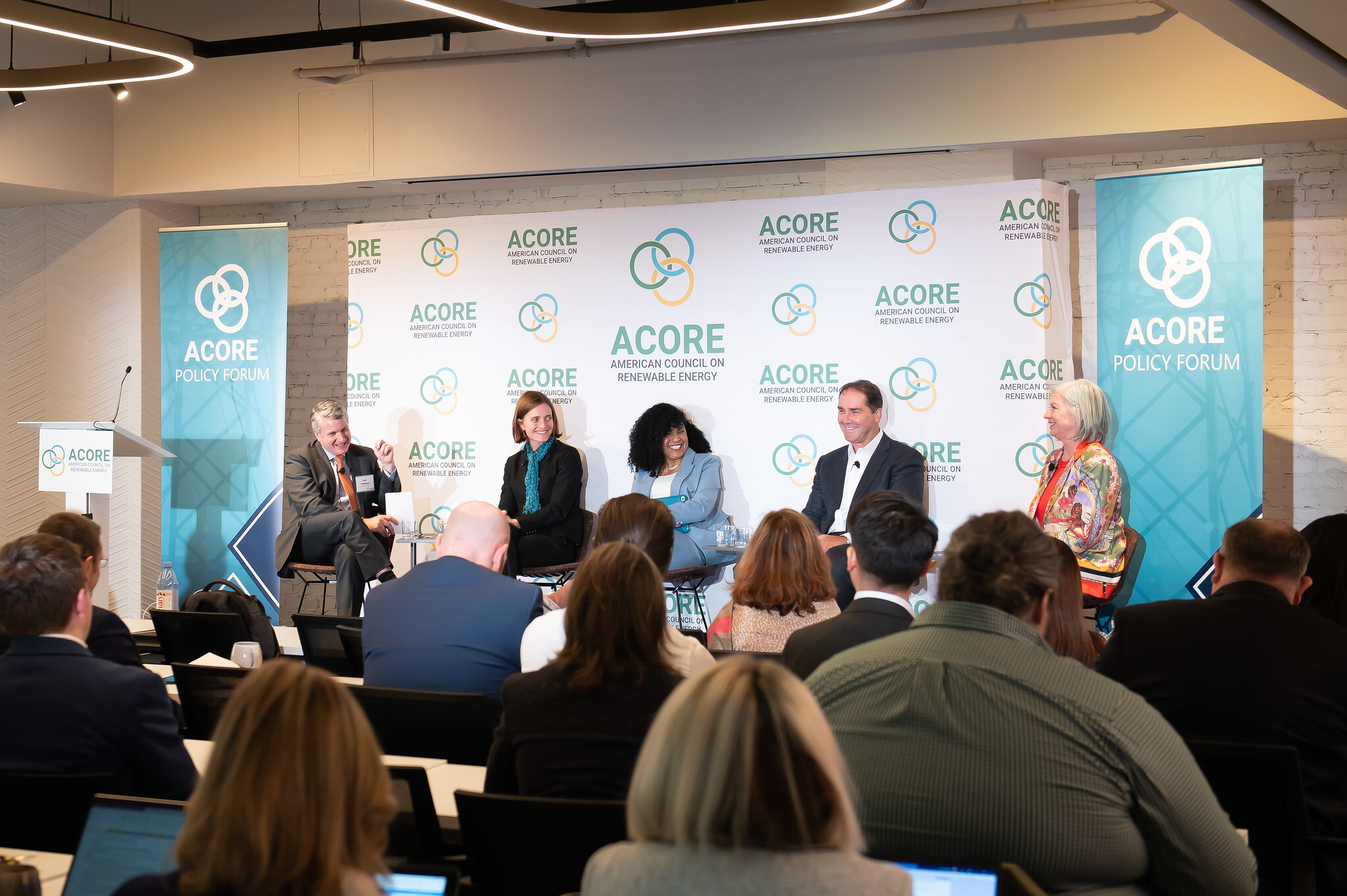
Building the Clean Energy Workforce of Tomorrow
As we look to scale renewable deployment and meet decarbonization goals, the panelists on this session discussed the policy and industry actions that will be key to ensuring the development of a diverse and qualified workforce. “This is a ground game,” said AJ Patton (548 Enterprise). “It takes everybody involved.” Both he and Erika Symmonds (SEIA) noted that jobs should already be lined up for participants in apprenticeship programs, which will involve effective communication and collaboration between training providers and private industry.
Symmonds also spoke to the importance of hiring effective management to foster a welcoming and inclusive work culture for newcomers to the industry. Vanessa Benedetti (Vestas) emphasized the appeal of long-term employment, with expanded opportunities to reach the management level, especially for younger applicants saddled with college debt.
Austin Keyser (IBEW) suggested that the priority of workforce development should be to help “energy communities” return to work and that, because grid infrastructure is often a prerequisite in those zip codes, it also makes good economic sense. The entire panel agreed that the chance to join the clean energy industry should be available everywhere but, as Patton noted from his experience developing workforce programs on the west side of Chicago, no two places are alike no matter their proximity. With local community voices as a conduit, the panel was hopeful that renewable energy job opportunities will transcend culture, language, geography, and experience.
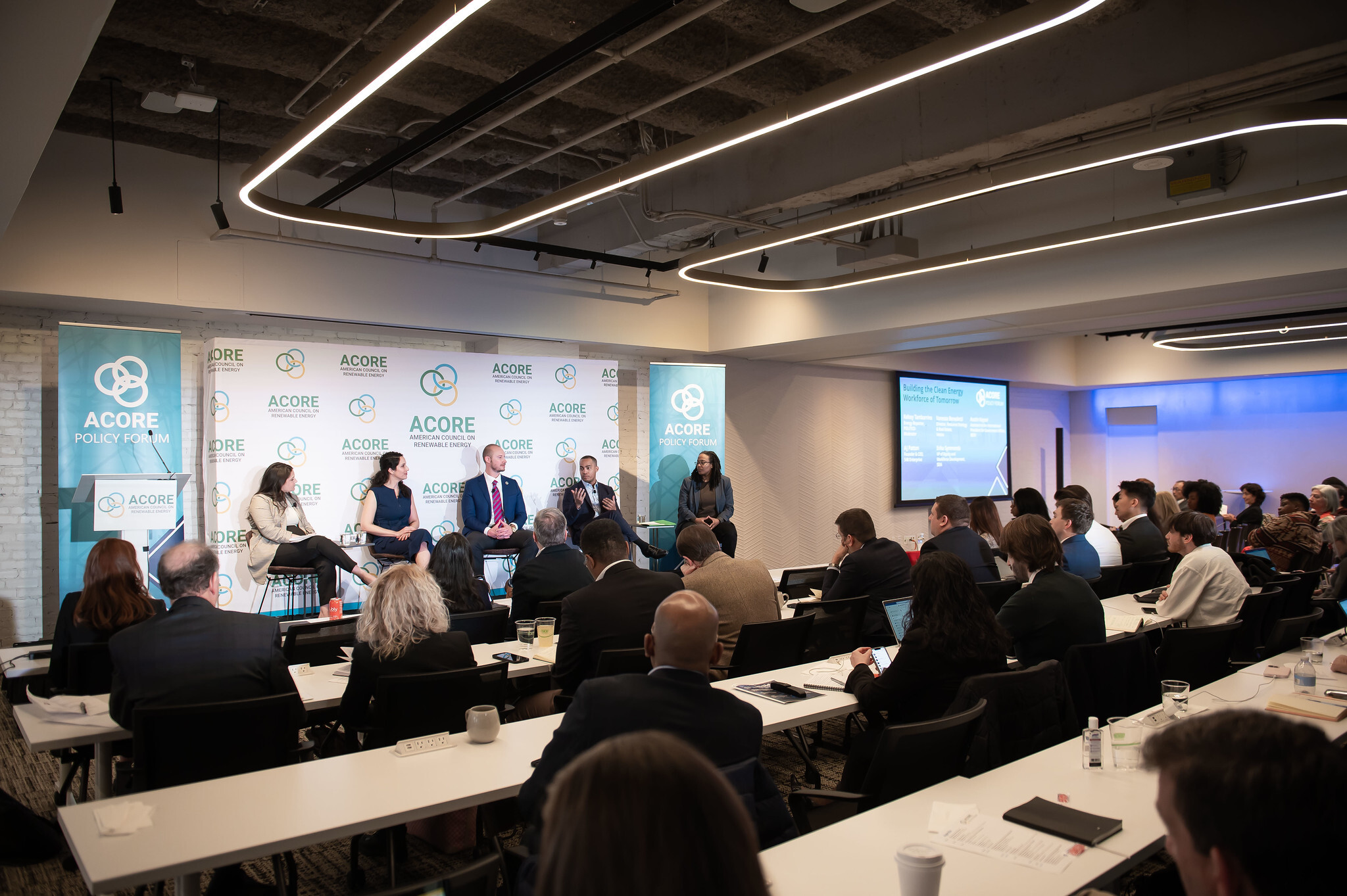
Updating the Grid to Achieve the Clean Energy Transition
“One hundred to zero.” Coining one of the more popular taglines at the 2023 ACORE Policy Forum, Bill Murray (Dominion Energy) pointed out the ratio of Americans who want their lights to turn on, a reassuring call to unity when crucial efforts to upgrade and enhance the electric grid can feel like a daunting challenge.
The experts on the final panel of the day concurred on the value of transmission. James Hewett (Breakthrough Energy) said getting transmission built is a key barrier to his company’s broader renewable investment portfolio, and Murray added that expanding transmission capacity will enable “the most significant economic transformation since the internet” by strengthening the grid to accommodate a wealth of new renewable energy generation. Kim Smaczniak (FERC) described numerous proposed rulemakings and areas of exploration that underlie the Commission’s objective to ensure reliability of the bulk power system, including interconnection reform, regional planning, transmission cost mitigation, and a potential minimum transfer requirement. These proposed rulemakings are focused on growing transmission needs, which she and moderator Alejandro Moreno (DOE) pointed out are likely to evolve over time.
Brian George (Google) suggested that cost allocation is perhaps the most important tool at FERC’s disposal to facilitate new high-voltage, interstate lines. He also articulated the importance of “aligning transmission with the types of resources we expect to see,” in reference to mounting interconnection queue backlogs that overwhelmingly consist of renewable projects, which Sen. Heinrich noted earlier amount to over 1,400 gigawatts as of last year.
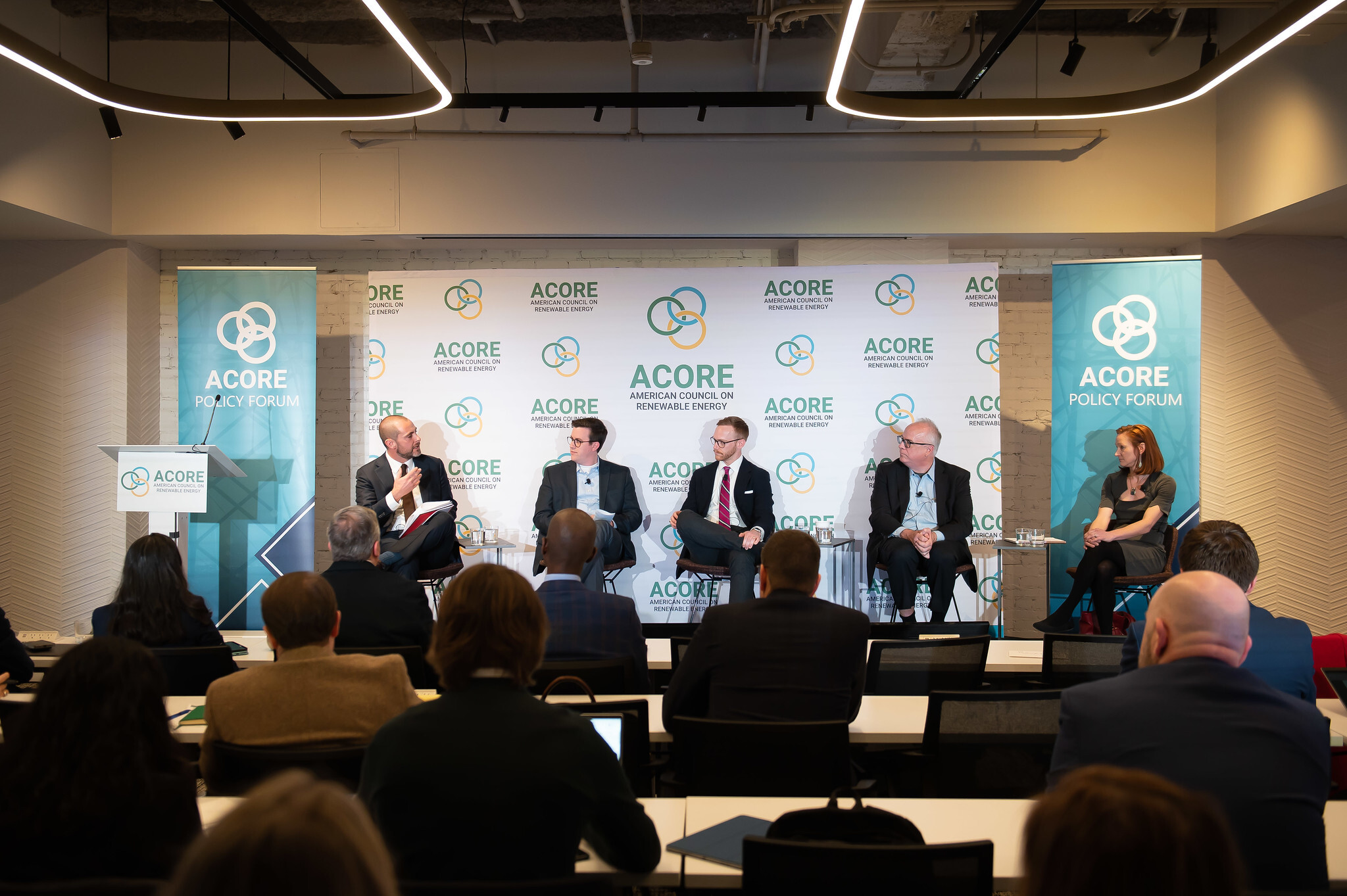
On behalf of the ACORE team, thank you to all who were able to attend our March events, especially our sponsors for helping make these gatherings possible.
Join leaders from across the clean energy sector.

What will our next 20 years look like? Here’s the truth: they’ll be better with ACORE at the forefront of energy policy.
Shannon Kellogg
Amazon Web Services (AWS)
